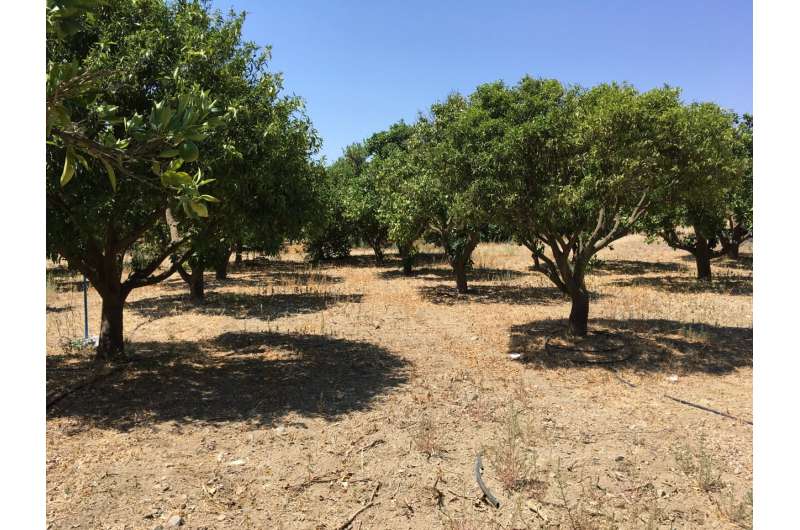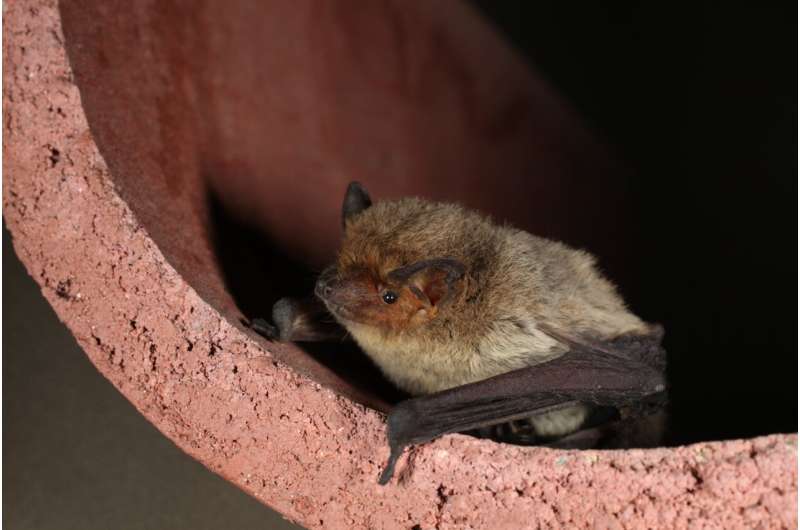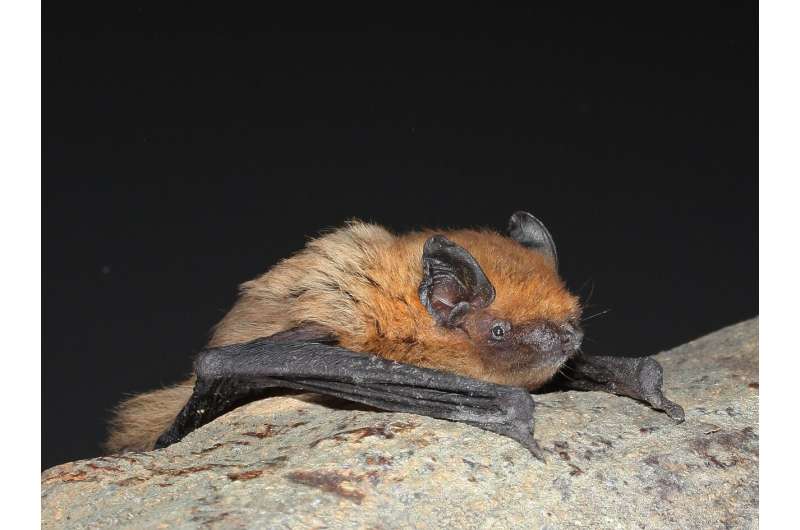This article has been reviewed according to Science X's editorial process and policies. Editors have highlighted the following attributes while ensuring the content's credibility:
fact-checked
peer-reviewed publication
trusted source
proofread
Study shows bats struggle during organic farming transition

Bat activity falls as farms make the transition to organic agriculture, new research shows.
Organic farming is better for biodiversity than conventional farming, which relies heavily on substances such as pesticides, herbicides and fertilizers.
However, little is known about how wildlife is affected by the transition period when a farm goes organic.
The new study, led by the universities of Bristol, Göttingen and Exeter, assessed the effects of organic farming by monitoring insect-eating bats at citrus orchards in Cyprus.
Activity of three of the four species included in the study was significantly lower at farms in the transition period, compared to conventional farms.
However, activity increased on established organic farms—suggesting a "time-lag" before the organic biodiversity boost for the most abundant bat species.
"We were surprised by our results—we expected the transition to organic farming to bring positive effects from the start," said Penelope Fialas, from the University of Exeter.
"We can't be certain why bats are negatively affected, but previous research suggests soil can suffer—with knock-on effects for other wildlife—when fertilizers, pesticides and other aspects of conventional farming stop."

"The soil and the wider ecosystem may take time to recover."
Fialas added: "Our findings suggest the transition to organic farming should be managed carefully, to limit any negative effects on biodiversity."
"For example, neighboring farms could avoid simultaneous transitions, allowing wildlife to find alternative habitats nearby while each farm switches its methods."
Gareth Jones, from the University of Bristol, said, "We've long known that organic farms often harbor higher biodiversity than otherwise similar conventional farms.
"The transition to organic farming has been little studied, however, and determining if the detrimental effects during transition observed here hold for other animals and plants would be an interesting future research project."
The study examined 22 matched pairs of citrus orchards, comparing bat activity at certified organic farms with conventional farms, and organic-transition farms with conventional farms.

The bat species included in the study were: Kuhl's pipistrelle (P. kuhlii), Savi's pipistrelle (H. savii), common bent-wing (M. schreibersii) and common pipistrelle (P. pipistrellus).
The findings showed:
- Activity of Savi's pipistrelles was three times lower—and activity of Kuhl's pipistrelles and common bent-wings was twice as low—on organic-transitional farms compared to conventional farms.
- Activity of Kuhl's pipistrelles was twice as high on organic farms compared to conventional farms.
- Activity of Kuhl's pipistrelles and Savi's pipistrelles was higher or organic farms than on organic-transition farms (by threefold and twofold respectively).
- The presence of "semi-natural" areas surrounding the farms did not affect these differences.
The findings are published in the Journal of Applied Ecology.
More information: Penelope C. Fialas et al, Transition to organic farming negatively affects bat activity, Journal of Applied Ecology (2023). DOI: 10.1111/1365-2664.14468
Journal information: Journal of Applied Ecology
Provided by University of Exeter


















